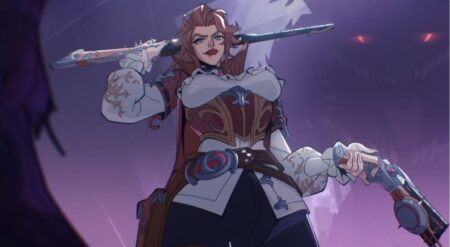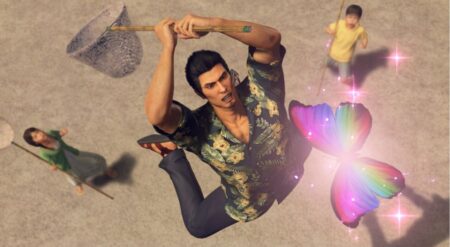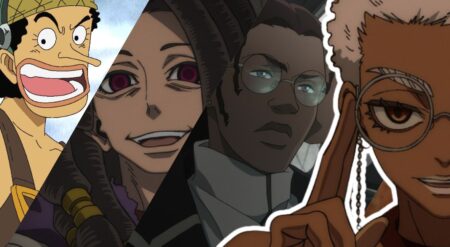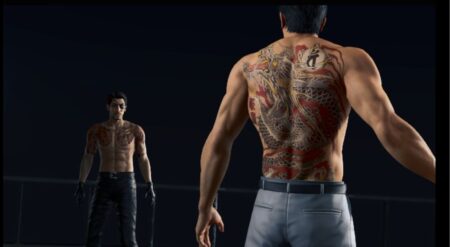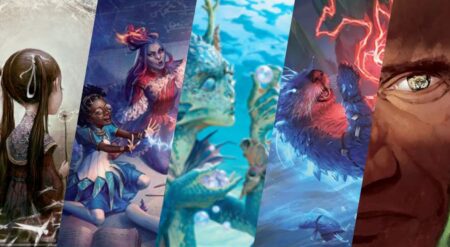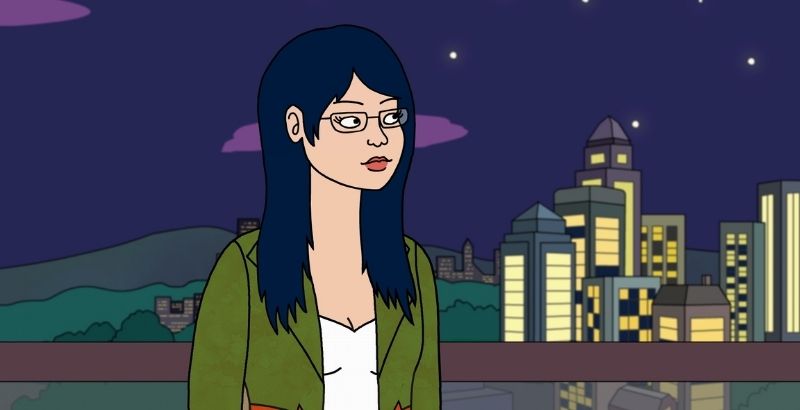
BoJack Horseman initially aired in 2014 and ended in 2020. The show’s premise comes off as simple, BoJack is an anthropomorphic horse who was a famous actor in a 90s sitcom trying to make a comeback. I was 18 when it started airing and I had turned 24 when it ended. BoJack Horseman was a television show I avoided at almost all costs because of how its fans discussed it. They talked about how it was one of the best adult animated shows exploring major themes such as depression, anxiety, familial trauma, and alcoholism. It’s no surprise that I am a huge fan of shows exploring such topics as you can read about the catharsis I experienced during my first watch-through of Neon Genesis Evangelion here.
Its exploration of childhood trauma and the coping mechanisms young adults develop because of their experiences was one of the first I had seen on screen that made me feel a lot less alone. I had just come to terms with my childhood trauma and still felt so deeply connected to my teen years that I avoided BoJack Horseman because I was afraid I was going to see something I wouldn’t like about myself within the characters of the show.
Maybe that’s a silly reason to avoid a show. I don’t really know how to describe this deep, gnawing feeling that BoJack Horseman would probably wreck me in ways I wouldn’t be able to predict. It was a gut feeling and I was completely correct. BoJack is a depressed alcoholic who is selfish, manipulative, narcissistic, and deeply insecure. He also has a best friend named Diane Nguyen, a writer, who plays off of BoJack’s mental health with her own depression and anxiety. For better or worse, BoJack and Diane are two sides of the same coin and can simultaneously bring out the best and worst in each other.
Diane’s complicated friendship with BoJack gives her room to wallow in her depression in an unhealthy way. BoJack is also depressed and insecure but doesn’t judge Diane at all for how she is. BoJack doesn’t help her either. Their relationship hinges on BoJack loving the idea of the person he could become with Diane’s help versus Diane feeling obligated to help BoJack regardless of helping herself. She’s self-destructive in her state of people-pleasing limbo. It’s easier to help BoJack be better because then she doesn’t have to focus on herself. Taking control of your depression can be so terrifying because I think it’s just hard to admit that you need help.
Like Diane, I can function even if it’s a bare type of functioning. Also, like Diane, I don’t want to deal with confrontation. Her actions serve as a way to shift focus from herself to being there for others. Let me tell you, it’s so easy to forget about yourself when people are relying on you. I can attest that growth and self-care are creating boundaries and once Diane recognizes that she needs to separate herself from the people who are making her miserable. I’ve never been good about separating myself from situations and people and while I’ve been taking steps to put myself first, Diane shows me that that journey may be rocky but can be done.
Diane says this line in season six that really struck me to the core and I think it’ll always stay with me. She’s attempting to write her book of personal essays and is trying to recount her traumas. She explores how she had a terrible upbringing where she felt different and detached from her family, she talks about her failed relationships because of her insecurity about what she desires from life, and continues to recount her experiences until it all bubbles over when she talks to Princess Carolyn.
She says, “…if I don’t [write my book] that means all the damage I got isn’t good damage, it’s just damage. I have gotten nothing out of it, and all those years, I was miserable for nothing.” I was completely dumbfounded. I think that through Diane I can see and truly understand for the first time as an adult, that sometimes life is just hard. It’s so difficult to navigate already and learning how to manage your mental health as the world becomes more and more unsustainable, it’s hard. While it’s dreary to recognize that this is your life, you will always deal with it. Diane really helped me accept that yeah, this is me. I think, for a really long time, I thought that my depression and anxiety would… just go away when I turned into an adult. I don’t think I knew that until I met her and I’m so grateful I did.
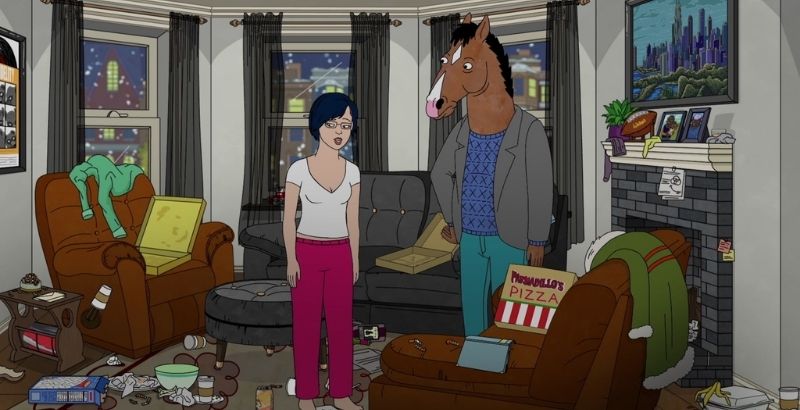
Similar to Diane, my adulthood has incrementally provided me with very good things. I have an accepting home, the ability to express myself authentically, good friends, amazing opportunities, a city to thrive in and yet I still have this pit of despair. All of these good things keep happening and yet I can’t generally feel happy about it. Diane asks, “What’s wrong with me?” and I just want to cry to the writers of BoJack and tell them, thank you. Thank you for this. Diane’s character arc is honestly so beautiful to me (and I’m sure so many others). I see so much of myself in her struggles and hope that one day, I’ll reach where she ends up.
She’s one of the first on-screen characters I’ve ever seen talk about her relationship with antidepressants and therapy. She talks about how she knows she’s depressed, but she doesn’t want to go back on anti-depressants because they make her gain weight. She cries out in frustration, “Do I just have to be on drugs forever now?” This is all too relatable to my personal journey with anti-depressants. My first prescription was for Effexor. I gained about 35 pounds and I really struggled with adapting to the changes my body made. My mood, like Diane’s, would become better but my world felt foggy and different. Diane destigmatizes anti-depressants and shows that it’s okay to need them. You aren’t weak; You’re not a burden; You’re alright.
I didn’t know that I needed to hear that. Transitioning into the beginning of adulthood has been rocky, confusing, and painful. 25 feels unreal to me and I’m not sure if aging always sort of feels that way. If there’s one thing I think we could take from Bojack Horseman, it’s that you’re not alone in your suffering, no matter how old you get or where you are in life. There’s a tomorrow, with no guarantee of it being bright or sunny, but at least it’s there and it’s yours.
The very last episode sums this all perfectly when Diane is speaking to BoJack for, maybe, the last time ever and she says, “Sometimes life’s a bitch and then you keep living.”

